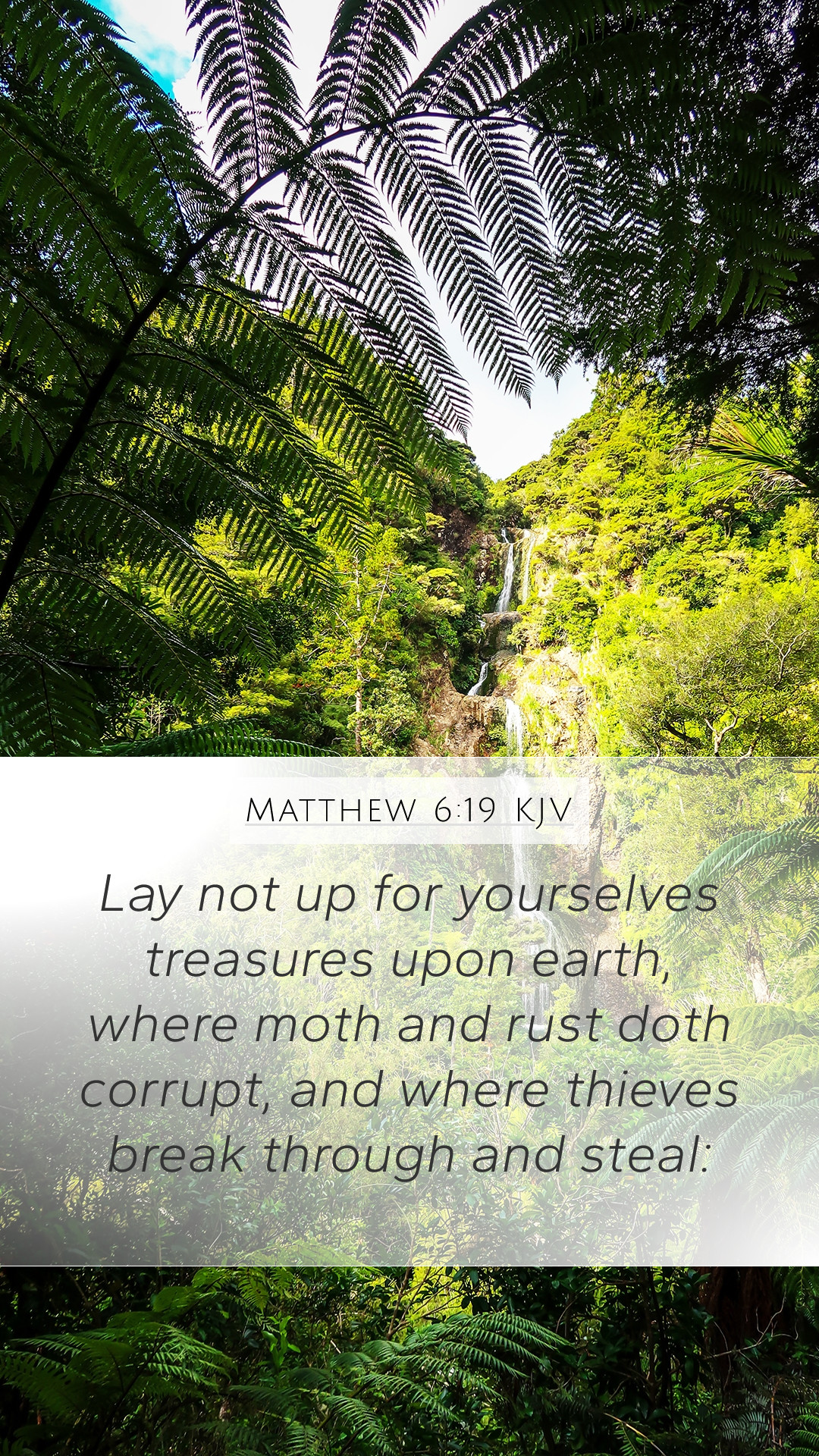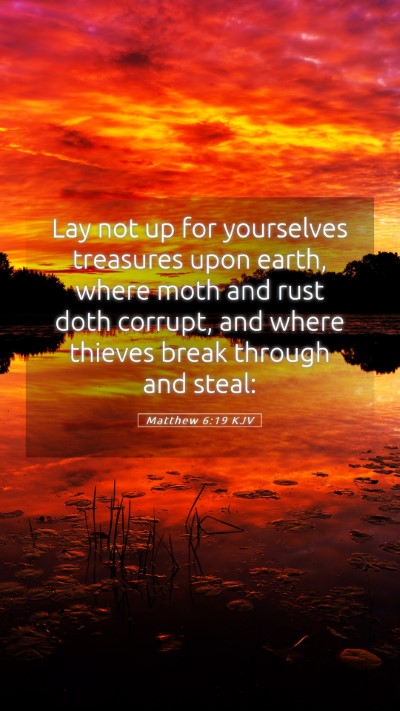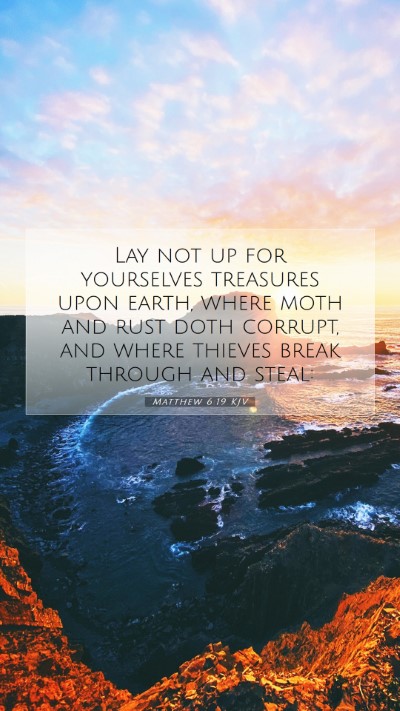Meaning and Commentary on Matthew 6:19
Matthew 6:19 states: "Lay not up for yourselves treasures upon earth, where moth and rust doth corrupt, and where thieves break through and steal:" This profound verse encourages believers to consider the nature of their investments—spiritually and materially. The insights below will help in understanding Scripture and the implications of this teaching.
Understanding the Verse
Matthew Henry noted that this passage speaks against the excessive attachment to worldly possessions. The "treasures upon earth" represent material wealth that is temporary and subject to decay. In contrast, true wealth is to be found in heavenly pursuits.
Albert Barnes elaborates that treasures can symbolize not only money but also anything that we hold dear on this earth, including fame and accolades. Such treasures can betray us as they are impermanent and ultimately unfulfilling.
According to Adam Clarke, the verse also serves as a warning against greed and the misplacement of priorities. Earthly treasures might provide temporary satisfaction but carry no eternal value.
Core Insights from Commentaries
- Impermanence of Earthly Treasures: All material possessions can perish or be stolen. No earthly investment is secure.
- Heavenly Investments: The call to focus on treasures in heaven emphasizes spiritual growth and good works, which yield eternal rewards.
- Prioritizing God: True security is found in a relationship with God rather than in material wealth.
- The Nature of Corruption: Moths and rust symbolically represent the decay that comes with earthly life, contrasting sharply with the everlasting nature of divine treasures.
Biblical Exegesis and Analysis
This verse is nestled in Jesus' Sermon on the Mount, where he provides principles for righteous living. It resonates with the themes of stewardship and the careful management of what God has entrusted to us.
The call to understanding Scripture includes realizing that Jesus provides not only a guideline for how to live but a perspective shift on how we perceive value.
Cross References
- Matthew 6:20: "But lay up for yourselves treasures in heaven, where neither moth nor rust doth corrupt, and where thieves do not break through nor steal."
- 1 Timothy 6:17-19: A reminder about placing hope in God rather than in uncertain riches.
- Luke 12:15: "And he said unto them, Take heed, and beware of covetousness: for a man's life consisteth not in the abundance of the things which he possesseth."
Application of the Verse
Understanding this scripture offers practical applications for daily life. Here are a few insights for Bible study groups:
- Shift in Priorities: Evaluate what is most important in life—is it the pursuit of wealth and success, or deeper spiritual values?
- Community Focus: Consider how we can invest our resources into helping others rather than hoarding for ourselves.
Conclusion
In summary, Matthew 6:19 encapsulates the wisdom we derive from scripture analysis concerning our earthly attachments versus eternal truths. The verse powerfully communicates the need for believers to have a heart aligned with God’s kingdom. In the pursuit of understanding Scripture, let us remember the value of investing in that which truly matters.


